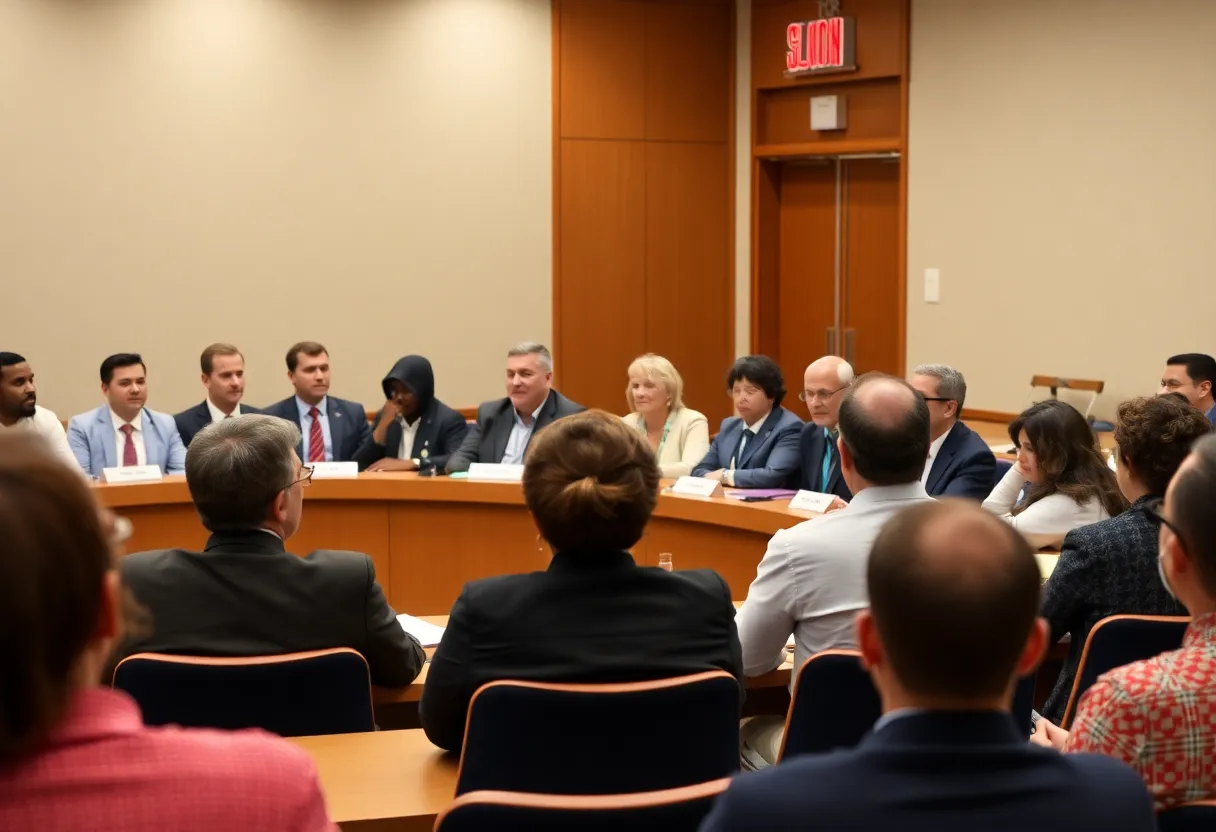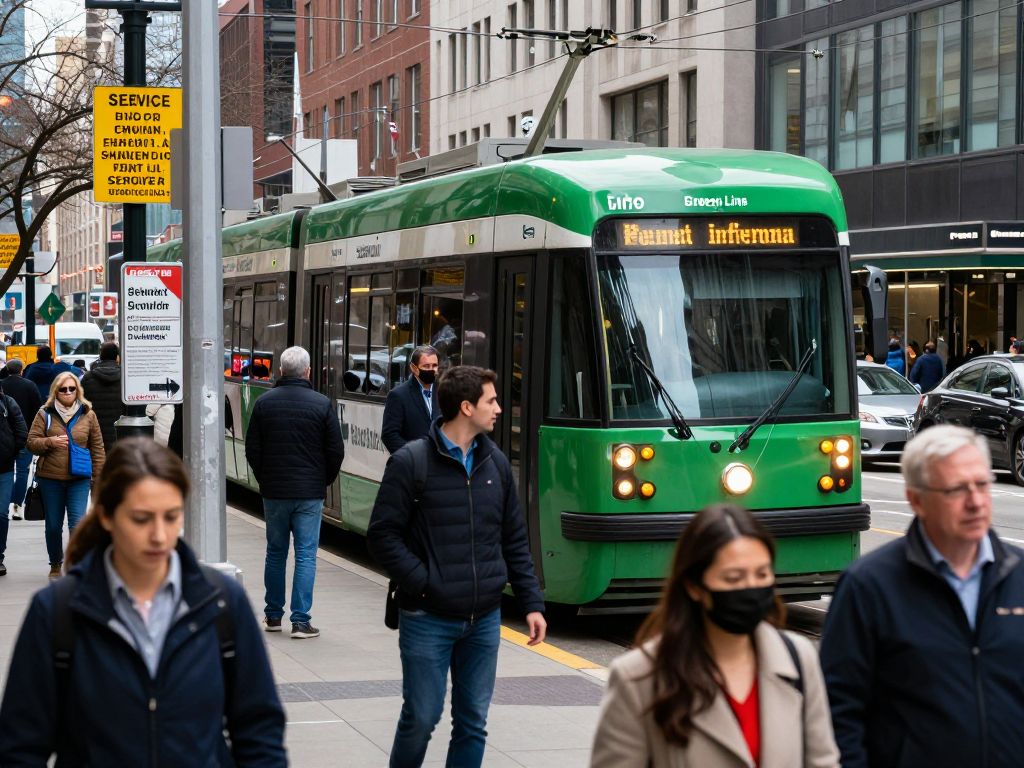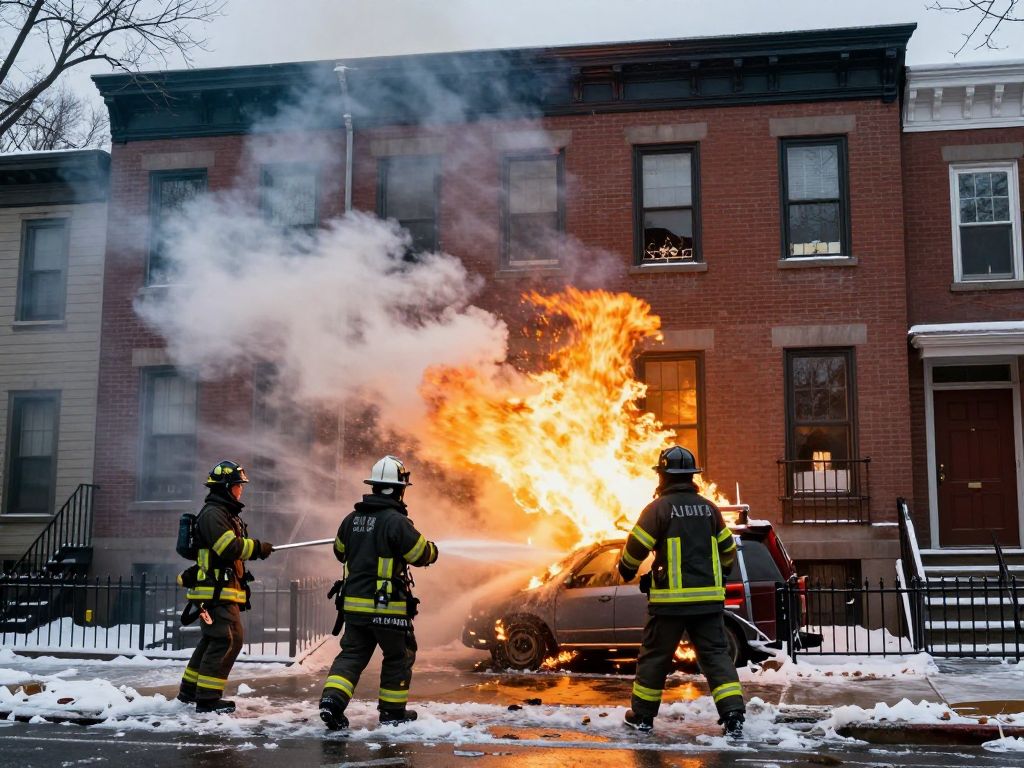Boston, September 25, 2025
News Summary
The Boston City Council voted 8-3 against a resolution aimed at opposing safe injection sites, supporting overdose prevention centers (OPCs) as a vital measure to combat fatal drug overdoses. While some councilors raised concerns that these sites could worsen drug activity in local neighborhoods, proponents argue that OPCs could save healthcare costs and connect individuals to treatment. The decision underscores a growing public health debate as the city grapples with the opioid crisis.
Boston
The Boston City Council voted 8-3 to strike down a resolution opposing legislation for the establishment of safe injection sites, with a focus on preventing fatal drug overdoses. The vote leaves the council majority aligned with city and public health officials who frame supervised consumption locations as overdose prevention centers (OPCs) that could reduce deaths and connect people to treatment, while three councilors pushed to block the concept and focus on expanding treatment instead.
What the vote means
The council decision rejected a resolution presented by councilors Ed Flynn, Erin Murphy, and John FitzGerald that aimed to formally oppose legislation to allow safe injection sites. Councilors who opposed the resolution described safe injection sites as overdose prevention centers (OPCs) that could reduce overdose deaths and promote treatment access. Despite the majority of council support for OPCs, councilors FitzGerald, Flynn, and Murphy cast the only votes in favor of the resolution opposing safe injection sites.
Arguments from both sides
The three councilors who sponsored the resolution argued that supervised injection sites would worsen drug activity in neighborhoods, pointing to community concerns near the Mass and Cass area and citing experiences from Philadelphia as part of their case against the sites. They expressed a preference for expanding treatment options and recovery resources rather than normalizing drug use through supervised injection.
Supporters of OPCs, including progressive councilors and some public health advocates, argued the facilities could not only prevent fatal overdoses but also reduce public drug use and transmission of disease, and offer pathways into treatment. Proponents claimed they could save the city around $4 million annually in healthcare costs by reducing public drug use and connecting individuals to treatment. Health care workers would supervise sites where individuals can use pre-obtained illicit drugs with protective legal measures for workers and users.
City and state data
Boston Public Health Commissioner Bisola Ojikutu reported that the city distributes over 80,000 syringes each month as part of harm reduction efforts, contributing to a decreased rate of fatal overdoses. Separately, Massachusetts recorded 169 fatal overdoses in the previous year, indicating a 38% decrease from 2023. Those figures are cited by public health officials as evidence that current harm reduction programs may be reducing some overdose harms, even as debate continues over additional measures like OPCs.
Federal and state legal context
At the federal level, U.S. Attorney Leah Foley criticized safe injection sites as illegal and harmful to addiction recovery, stating they support destructive behavior rather than offering solutions. The Governor’s office has expressed conditional support for communities to decide on safe consumption sites, but federal law currently prohibits such facilities. State lawmakers have recently worked on bipartisan legislation addressing the opioid crisis that excludes the controversial proposal for safe injection sites.
Local reaction and next steps
The council discussion follows public hearings where residents voiced concerns about drug-related crime and public safety near Mass and Cass. Some communities in Massachusetts, such as Worcester, have shown interest in exploring safe consumption sites, and other jurisdictions including Rhode Island and New York City have moved forward with similar models. A recent editorial calling for a pilot program for safe injection sites in Massachusetts prompted a public rebuttal from the U.S. Attorney. Critics of the idea argue that resources should be allocated toward treatment rather than supervised injection facilities, emphasizing preventive measures and recovery support.
What OPCs would look like
In proposals discussed by supporters, OPCs would be staffed by health care workers who supervise use of pre-obtained illicit drugs, provide naloxone and sterile supplies, offer screening and treatment referrals, and operate under protective legal measures for workers and users. Proponents say this model reduces disease transmission, prevents fatal overdoses, and creates contact points for connecting people to longer-term care.
Immediate implications
The council vote does not itself create OPCs; instead, it signals the council majority’s position and affects local momentum around any future efforts. With federal law currently prohibiting supervised consumption facilities, proponents and opponents alike are now focused on state legislative developments, local pilot proposals, and continued debate about where to invest limited public resources in addressing opioid addiction and overdose prevention.
FAQ
What was the City Council vote?
The Boston City Council voted 8-3 to strike down a resolution opposing legislation for the establishment of safe injection sites, with a focus on preventing fatal drug overdoses.
Who sponsored the resolution opposing safe injection sites?
The resolution was presented by moderate councilors Ed Flynn, Erin Murphy, and John FitzGerald, who argued against the concept of safe injection sites, claiming they would worsen drug activity in neighborhoods, particularly in the Mass and Cass area.
How did councilors who supported OPCs describe them?
Councilors who opposed the resolution characterized safe injection sites as overdose prevention centers (OPCs) that could reduce overdose deaths and promote treatment access.
What financial impact did proponents claim?
Proponents of safe injection sites, including progressive councilors, claimed they could save the city around $4 million annually in healthcare costs by reducing public drug use and connecting individuals to treatment.
What staffing and legal protections were discussed?
Health care workers would supervise sites where individuals can use pre-obtained illicit drugs with protective legal measures for workers and users.
What did the Boston Public Health Commissioner report about syringe distribution?
Boston Public Health Commissioner Bisola Ojikutu reported that the city distributes over 80,000 syringes each month as part of harm reduction efforts, contributing to a decreased rate of fatal overdoses.
What are the recent overdose statistics for Massachusetts?
Massachusetts recorded 169 fatal overdoses in the previous year, indicating a 38% decrease from 2023.
What is the position of the U.S. Attorney?
U.S. Attorney Leah Foley criticized safe injection sites as illegal and harmful to addiction recovery, stating they support destructive behavior rather than offering solutions.
What did Governor Maura Healey’s office say?
Governor Maura Healey’s office has expressed conditional support for communities to decide on safe consumption sites, but federal law currently prohibits such facilities.
How did the council vote break down?
Despite the majority of council support for OPCs, councilors FitzGerald, Flynn, and Murphy cast the only votes in favor of the resolution opposing safe injection sites.
{
“@context”: “https://schema.org”,
“@type”: “FAQPage”,
“mainEntity”: [
{
“@type”: “Question”,
“name”: “What was the City Council vote?”,
“acceptedAnswer”: {
“@type”: “Answer”,
“text”: “The Boston City Council voted 8-3 to strike down a resolution opposing legislation for the establishment of safe injection sites, with a focus on preventing fatal drug overdoses.”
}
},
{
“@type”: “Question”,
“name”: “Who sponsored the resolution opposing safe injection sites?”,
“acceptedAnswer”: {
“@type”: “Answer”,
“text”: “The resolution was presented by moderate councilors Ed Flynn, Erin Murphy, and John FitzGerald, who argued against the concept of safe injection sites, claiming they would worsen drug activity in neighborhoods, particularly in the Mass and Cass area.”
}
},
{
“@type”: “Question”,
“name”: “How did councilors who supported OPCs describe them?”,
“acceptedAnswer”: {
“@type”: “Answer”,
“text”: “Councilors who opposed the resolution characterized safe injection sites as overdose prevention centers (OPCs) that could reduce overdose deaths and promote treatment access.”
}
},
{
“@type”: “Question”,
“name”: “What financial impact did proponents claim?”,
“acceptedAnswer”: {
“@type”: “Answer”,
“text”: “Proponents of safe injection sites, including progressive councilors, claimed they could save the city around $4 million annually in healthcare costs by reducing public drug use and connecting individuals to treatment.”
}
},
{
“@type”: “Question”,
“name”: “What staffing and legal protections were discussed?”,
“acceptedAnswer”: {
“@type”: “Answer”,
“text”: “Health care workers would supervise sites where individuals can use pre-obtained illicit drugs with protective legal measures for workers and users.”
}
},
{
“@type”: “Question”,
“name”: “What did the Boston Public Health Commissioner report about syringe distribution?”,
“acceptedAnswer”: {
“@type”: “Answer”,
“text”: “Boston Public Health Commissioner Bisola Ojikutu reported that the city distributes over 80,000 syringes each month as part of harm reduction efforts, contributing to a decreased rate of fatal overdoses.”
}
},
{
“@type”: “Question”,
“name”: “What are the recent overdose statistics for Massachusetts?”,
“acceptedAnswer”: {
“@type”: “Answer”,
“text”: “Massachusetts recorded 169 fatal overdoses in the previous year, indicating a 38% decrease from 2023.”
}
},
{
“@type”: “Question”,
“name”: “What is the position of the U.S. Attorney?”,
“acceptedAnswer”: {
“@type”: “Answer”,
“text”: “U.S. Attorney Leah Foley criticized safe injection sites as illegal and harmful to addiction recovery, stating they support destructive behavior rather than offering solutions.”
}
},
{
“@type”: “Question”,
“name”: “What did Governor Maura Healey’s office say?”,
“acceptedAnswer”: {
“@type”: “Answer”,
“text”: “Governor Maura Healey’s office has expressed conditional support for communities to decide on safe consumption sites, but federal law currently prohibits such facilities.”
}
},
{
“@type”: “Question”,
“name”: “How did the council vote break down?”,
“acceptedAnswer”: {
“@type”: “Answer”,
“text”: “Despite the majority of council support for OPCs, councilors FitzGerald, Flynn, and Murphy cast the only votes in favor of the resolution opposing safe injection sites.”
}
}
]
}
Quick Facts
| Topic | Detail |
|---|---|
| City Council vote | The Boston City Council voted 8-3 to strike down a resolution opposing legislation for the establishment of safe injection sites, with a focus on preventing fatal drug overdoses. |
| Resolution sponsors | Ed Flynn, Erin Murphy, and John FitzGerald presented the resolution opposing safe injection sites. |
| Council minority votes | Councilors FitzGerald, Flynn, and Murphy cast the only votes in favor of the resolution opposing safe injection sites. |
| Public health data (Boston) | Boston Public Health Commissioner Bisola Ojikutu reported that the city distributes over 80,000 syringes each month as part of harm reduction efforts. |
| State overdose data | Massachusetts recorded 169 fatal overdoses in the previous year, indicating a 38% decrease from 2023. |
| Estimated savings claimed by proponents | Proponents claimed they could save the city around $4 million annually in healthcare costs. |
| Federal position | U.S. Attorney Leah Foley criticized safe injection sites as illegal and harmful to addiction recovery; federal law currently prohibits such facilities. |
| State policy status | State lawmakers have recently worked on bipartisan legislation addressing the opioid crisis that excludes the controversial proposal for safe injection sites. |
Deeper Dive: News & Info About This Topic
HERE Resources
Boston City Council Reviews Stricter Background Check Policies
How To Contact Boston City Council Members
Best Boston Neighborhood For Young Professionals Near Public Transit
Ed Flynn Introduces Resolution Against Safe Injection Sites in Boston
Boston’s Mass. and Cass Area Shows Signs of Change Amid Concerns
Somerville Responds to Federal Order on Homeless Encampments
Additional Resources
- Boston Herald: Boston City Council Backs Safe Injection Sites
- Wikipedia: Supervised Injection Site
- NBC Boston: Boston City Council Ed Flynn Safe Injection Sites Resolution
- Google Search: Safe Injection Sites Massachusetts
- Boston.com: U.S. Attorney for Mass Slams Safe Injection Sites
- Encyclopedia Britannica: Opioid
- Boston Globe: Massachusetts Legislature Opioid Bill
- CBS News: Supervised Injection Sites Massachusetts
- AP News: Supervised Injection Sites Massachusetts Bill

Author: STAFF HERE BOSTON WRITER
The BOSTON STAFF WRITER represents the experienced team at HEREBoston.com, your go-to source for actionable local news and information in Boston, Suffolk County, and beyond. Specializing in "news you can use," we cover essential topics like product reviews for personal and business needs, local business directories, politics, real estate trends, neighborhood insights, and state news affecting the area—with deep expertise drawn from years of dedicated reporting and strong community input, including local press releases and business updates. We deliver top reporting on high-value events such as Boston Marathon, Head of the Charles Regatta, and Boston Harborfest. Our coverage extends to key organizations like the Greater Boston Chamber of Commerce and Associated Industries of Massachusetts, plus leading businesses in finance, biotech, and insurance that power the local economy such as Fidelity Investments, Biogen, and Liberty Mutual Insurance. As part of the broader HERE network, we provide comprehensive, credible insights into Massachusetts's dynamic landscape.





